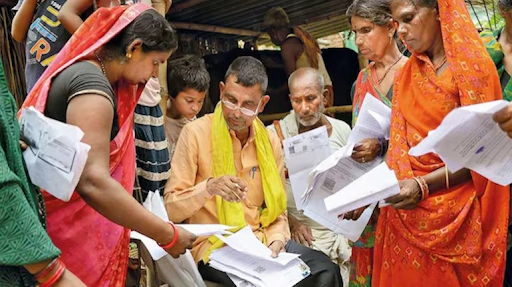Description
Context: Publication of notice under Special Marriage Act optional; mandatory notice invades privacy: The Allahabad High Court.
Court Observations:
- The requirement of publication of notice under Section 6 and inviting or entertaining objections under Section 7 of Special Marriage Act can only be read as directory in nature, the court held.
- In a significant judgment affecting inter-faith couples seeking to get married under the Special Marriage Act, 1954, the Allahabad High Court has ruled that it would be optional and not mandatory for them to publish a notice about their intended marriage.
- The provision for mandatory publication of notice, derived through “simplistic reading” of the particular law, “would invade in the fundamental rights of liberty and privacy, including within its sphere freedom to choose for marriage without interference from state and non-state actors, of the persons concerned.
‘Requirement of publication of notice directory’
- In case they do not make such a request for publication of notice in writing, while giving notice under Section 5 of the Act, the Marriage Officer shall not publish any such notice or entertain objections to the intended marriage and proceed with the solemnisation of the marriage,”
The Special Marriage Act, 1954
- It is an Act of the Parliament of India enacted to provide a special form of marriage for the people of India and all Indian nationals in foreign countries, irrespective of the religion or faith followed by either party.
- The Act originated from a piece of legislation proposed during the late 19th century.
- Marriages solemnized under Special Marriage Act are not governed by personal laws.
- It can apply in inter-caste and inter-religion marriages.
- The Special Marriage Act, 1954 has 3 major objectives:
- To provide a special form of marriage in certain cases,
- to provide for registration of certain marriages and,
- to provide for divorce
Applicability
- Any person, irrespective of religionHindus, Muslims, Buddhists, Jains, Sikhs, Christians, Parsis, or Jews can also perform marriage under the Special Marriage Act, 1954.
- Inter-religion marriages are performed under this Act.
- This Act is applicable to the entire territory of India and extends to intending spouses who are both Indian nationals living abroad.
- Indian national living abroad.
Requirements
- The marriage performed under the Special Marriage Act, 1954 is a civil contract and accordingly, there need be no rites or ceremonial requirements.
- The parties have to file a Notice of Intended Marriage in the specified form to the Marriage Registrar of the district in which at least one of the parties to the marriage has resided for a period of not less than thirty days immediately preceding the date on which such notice is given.
- After the expiration of thirty days from the date on which notice of an intended marriage has been published, the marriage may be solemnised, unless it has been objected to by any person.
- The marriage may be solemnised at the specified Marriage Office.
Conditions for marriage
- Each party involved should have no other subsisting valid marriage. In other words, the resulting marriage should be monogamous for both parties.
- The groom must be at least 21 years old; the bride must be at least 18 years old.
- The parties should be competent in regard to their mental capacity to the extent that they are able to give valid consent for the marriage.
- The parties should not fall within the degree of prohibited relationship.
https://www.thehindu.com/news/national/publication-of-notice-under-special-marriage-act-optional-mandatory-notice-invades-privacy-allahabad-hc/article33569377.ece?homepage=true






